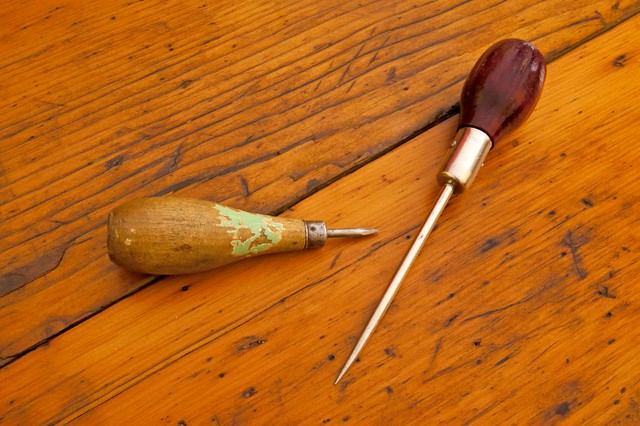Words for sigh, groan and related things in Celtic languages.

Bridge of Sighs, Cambridge, UK
Words marked with a * are reconstructions.
| Proto-Celtic | *ouxsanatā = sign, groan |
|---|---|
| Old Irish (Goídelc) | osnad = sign, groan |
| Middle Irish (Gaoidhealg) | osnad, osna, osnam, asnad = sign, groan or similar utterance (of pain, fatigue, etc), a grievance, cause of complaint, impeachment |
| Irish (Gaeilge) | osna [ˈɔsˠn̪ˠə] = sigh, groan smiorúil = marrowy, medullary, lively, spirited, manly osnaigh = to sigh osnaíl = sighing, sobbing osnaíoch = sighing |
| Scottish Gaelic (Gàidhlig) | osna [ɔsn̪ˠə] = sigh osnach [ɔsn̪ˠəx] = sighing osnachadh [ɔsn̪ˠəxəɣ] = (act of) sighing osnaich [ɔsn̪ˠɪç] = groaning, sighing |
| Manx (Gaelg) | osney = groan, sigh, sough, pant, blast osnaghey = to moan, sigh, sough, gasp, groan; sighing |
| Proto-Brythonic | *ʉxanad = sigh (?) |
| Middle Welsh (Kymraec) | ucheneid, ucheneit, vcheneit, ychenaid = sigh, groan, moan ucheneidaỽ, ucheneidio, vcheneiddio = to sigh, groan, moan, gasp, sob |
| Welsh (Cymraeg) | uchenaid = sigh, groan, moan, aspiration ucheneid(i)o = to sigh, groan, moan, gasp, sob ucheneidiol = sighing, short-winded, panting, aspirate, fricative ucheneidiwr = one who sighs or groans achenaid = sigh, aspiration ochenaid = sigh, groan, moan, sorrow, short prayer ochneidio = to sigh, moan, groan ochneidiol = sighing |
| Middle Cornish (Cernewec) | hanadzhan = sigh hynadzha = to groan, to sigh hynadzhas = a groan, sigh, howling |
| Cornish (Kernewek) | hanas = groan, murmur, sigh, whisper hanasa, hanaja = to groan, murmur, sigh, whisper |
| Middle Breton (Brezonec) | huanat, vhanat = sigh huanadaff = to sigh |
| Breton (Brezhoneg) | huan = sigh huanad [hy.ˈãː.nat] = sigh, sorrow, pain, affliction huanadañ = to sigh huanader = sighing, one who sighs |
Etymology: from Proto-Celtic *(o)uxs- (up) and *anati (to pause, remain – originally to breathe), from Proto-Indo-European *upó-/*h₁ewp- (up, to rise), and *h₂énh₁ti (to breathe) from *h₂enh₁- (to breathe) [source].
Words from the same roots include angi (breath, ethos) in Icelandic, ånde (breath, to breathe) in Danish, anhéler (to pant, gasp) in French, ëndë (desire, inclination, pleasure) in Albanian, جان (jân – soul, life, energy, strength, essense) in Persian, anemone, animal, animate, animosity, exhale and inhale in English [source], and words for up, above, high, elevated, noble, chief, leader, life, soul, spirit, breath, etc in Celtic languages.
| Middle Welsh (Kymraec) | ebwch = groan, sob, sigh, gasp |
|---|---|
| Welsh (Cymraeg) | ebwch = groan, sob, sigh, gasp, (short) breath, blast, spasm ebychiad = a gasping, a sighing, gasp, sigh, interjection, exclamation ebychnod = exclamation mark ebychol = sighing, groaning, gasping ebychu = to gasp, sigh, groan, exclaim, interject |
Etymology: unknown [source].
Sources: Wiktionary, Etymological Dictionary Of Proto Celtic, In Dúil Bélrai English – Old Irish glossary, eDIL – Electronic Dictionary of the Irish Language, Teanglann.ie, Am Faclair Beag, An etymological dictionary of the Gaelic language, Fockleyreen: Manx – English Dictionary, Online Manx Dictionary, Gaelg Corpus, Geiriadur Prifysgol Cymru, Lexicon cornu-britannicum : a dictionary of the ancient Celtic language of Cornwall, Gerlyver Kernewek, Devri : Le dictionaire diachronique du breton, Geriafurch, TermOfis









